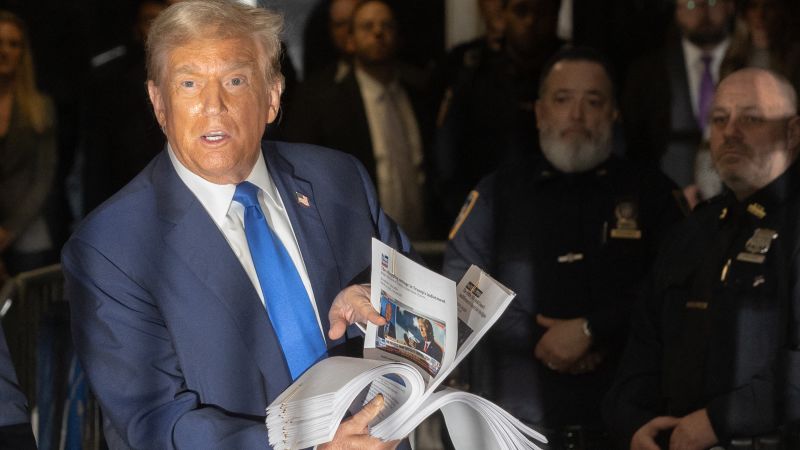Last week brought unexpected twists in an already unpredictable election year. Former President Donald Trump is currently on trial in New York on charges of falsifying business records related to hush money payments before the 2016 election. Despite expectations of a lengthy jury selection process, it was completed in just a few days with twelve jurors and six alternates seated. Trump is facing the first of four potential criminal trials, with opening arguments set to begin soon. There have been hiccups along the way, such as juror impartiality concerns and public disturbances outside the courthouse, but the trial is proceeding.
In a surprising move, House Speaker Mike Johnson received bipartisan support for a plan to hold votes on aid for Ukraine, Israel, and Taiwan. However, this decision has caused friction within the Republican party, with three members pledging to support a plan to oust Johnson from his role as speaker. Johnson has maintained the support of most Republicans and Trump, but the fault lines within the GOP are becoming more apparent. Johnson may require Democratic support to retain his position, potentially signaling a shift towards bipartisan or coalition governing in the future.
Despite opposition from some members of the GOP, lawmakers in the House and Senate are largely in favor of providing military aid to Ukraine in response to Russia’s invasion. Johnson, who has previously been skeptical of Ukraine aid, is now close to securing the necessary vote in the House. This development has shed light on the influence of the nationalist-leaning right-wing of the GOP, which has raised concerns about their commitment to supporting democracies around the world.
Recent tensions between Israel and Iran, marked by tit-for-tat strikes, have raised concerns about the potential for all-out war. However, analysts believe that the recent escalation may have reached a temporary resolution, with Iran not expected to respond further to Israeli actions. President Joe Biden continues to campaign energetically, focusing on economic populism during a recent swing through Pennsylvania. While Trump continues to focus on conspiracy theories, Biden is working on drawing a contrast between their respective messages on key issues such as democracy and tariffs.
Biden’s economic pitch, dubbed “Bidenomics,” faces challenges from Americans feeling the impact of inflation and high prices across various sectors. The International Monetary Fund has expressed concern that the US economy is growing too quickly compared to other countries, with the US surpassing its pre-pandemic growth levels. This situation may deter the Federal Reserve from considering interest rate cuts in the near future. Biden’s efforts to address economic concerns and maintain economic stability will be critical in the coming months.


